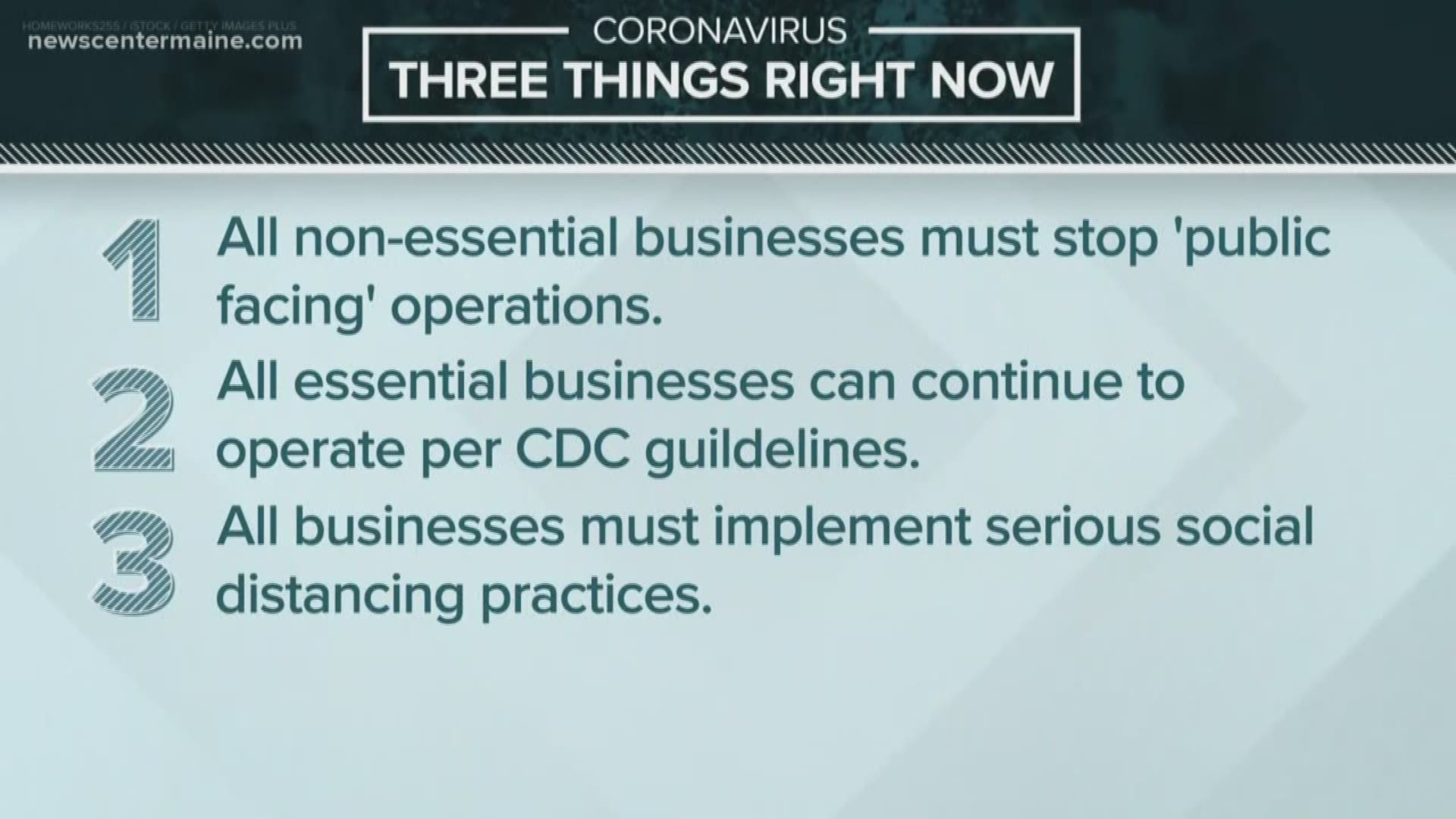MAINE, USA — "Just because a store is open doesn't mean it's safe for you to go there," said Maine Governor Janet Mills.
Governor Mills has declared a civil state of emergency and has issued orders for non-essential businesses in the state to shut down for 14 days.
What does this mean?
Essential, meaning places like hospitals, grocery stores, pharmacies, truck delivery and distribution of goods, public transportation are open.
Non-essential, meaning places like gyms, restaurants, salons, and shopping malls are closed.
Ultimately, it remains up to the specific, privately-owned company to decide if they should close or not, or the parameters around how they stay open if needed.
For example, while grocery stores remain open, most have changed their hours in response to the coronavirus pandemic. Another example is animal shelters, which remain open to care for the animals, but many are not open to the public at this time.
The exact parameters of the governor's executive order can be found HERE.
In extension to this, people that are "out and about" for non-work or basic needs related trips could be fined. In Portland, someone in violation of the stay-at-home order could be fined up to $500.
For those working for "essential businesses," these employees are often issued paperwork or passes from their employer to verify their need to be out and about.
--
At NEWS CENTER Maine, we’re focusing our news coverage on the facts and not the fear around the illness. To see our full coverage, visit our coronavirus section here: www.newscentermaine.com/coronavirus.
Editor’s note: A previous version of this article listed car dealerships as a non-essential business. Since most dealerships DO offer repairs on vehicles, they fall under the category of being essential.

